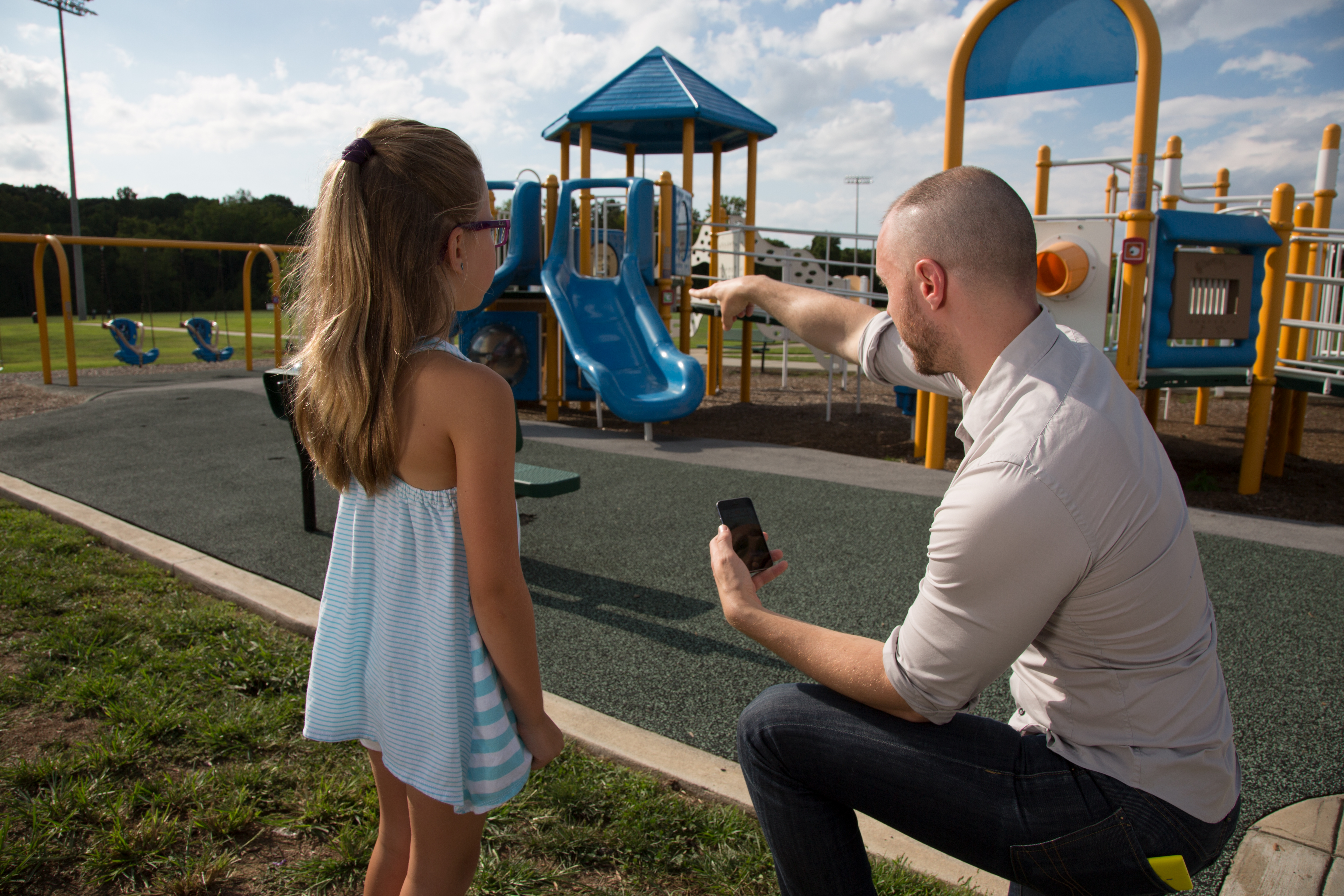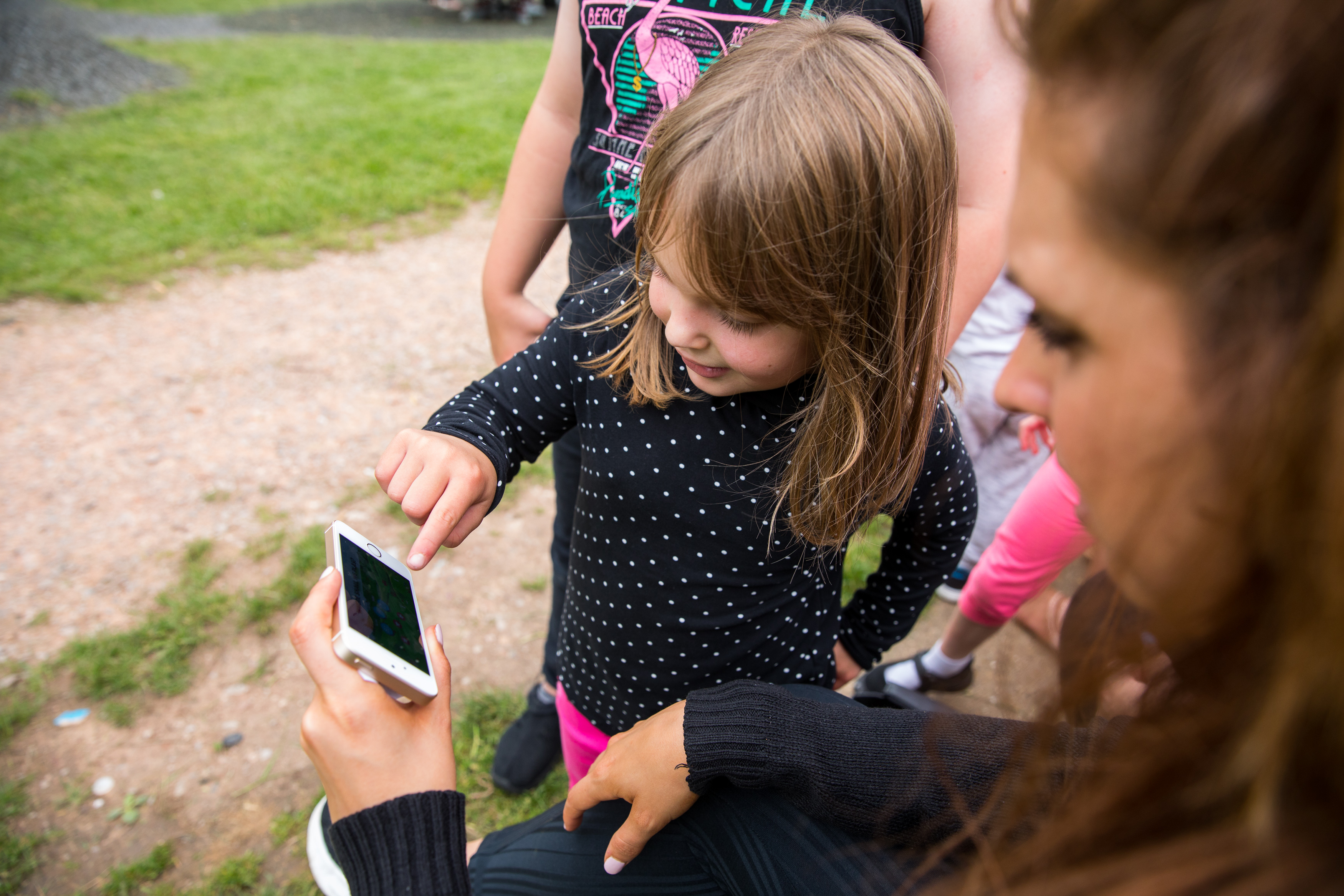The developers behind AR-powered smart playgrounds
Child obesity rates in the United States have soared since 1970. Nearly one in five school-age kids in the U.S. currently have the disease, and parents can blame—in part—kids’ increasing desire to sit on the couch.
While a number of factors influence children’s inactivity, video games in particular rank near the top of the list. According to Nielsen—an organization that provides market research, insights, and data about what people watch, listen, and buy—kids spend more than six hours playing games a week: a number that’s far higher than time spent exercising.
Vancouver-based company Biba, however, has chosen not to fight that trend. Rather than compete against kids’ enthusiasm for gaming, the organization uses it towards their advantage.
“Essentially what Biba does is to transform any playground into a smart playground,” says Matt Toner, the company’s CEO. “We’re giving them a videogame that has all the bells and whistles that they’ve come to love, but it can only be played on a playground. All it takes is the parent’s touchscreen device. So they have to get back outside, and they have to run and jump and make friends, and they have to do it with their parents. So we’re trying to reverse that compulsion pattern [for gaming] back to something healthy.”
The company ties their games to outdoor spaces with location-based technology. More than 3,600 playgrounds worldwide have been fitted with Biba’s colourful character icons, which work similar to QR codes. Different pieces of equipment–like slides, monkey bars, or climbing frames–are tagged with unique markers which parents can scan after their kids have finished playing on them. That action unlocks the next part of the game, and brings the story to life using augmented reality visuals.
“Most recently, we’ve been creating what we call virtual playrooms,” says Toner. “We can anchor a point in the playground, and when someone reaches an objective or task in the game, the parents complete the scan.”

Augmented reality playgrounds / Image Credit: Biba
“In one instance, it creates a telemagical doorway,” he continues. “A parent holds up the phone, and through the camera you see this doorway spring to life. The door opens, and in the case of our Teletubbies game, you can walk into the nursery, and the characters are there. And you can interact with them, and they’ve got little message boards on the wall, and your friends can come and see their own accomplishments there, and leave new messages. When you walk into the space and look up, you can see the ceiling and look around. When you turn back towards the door where you came in, it’s like Narnia—you can see the real world back outside.”
For Toner and the Biba team, adding AR elements to their games was an easy way to continue engaging with modern-day children. High-profile partnerships with Sony Pictures Animation—the makers of Hotel Transylvania—and DHX Media, creators of the Teletubbies, spurred the company to find innovative ways to bring the companies characters to life. Augmented reality allowed Biba to make those experiences accessible to anyone with a smart device.
“AR is so exciting, because it’s magic,” Toner says. “We’re raising the first generation of touchscreen natives. For kids growing up now, they know that when they touch something onscreen, something magical will happen. AR brings that into the real world.”

Teletubbies app launch / Image Credit: Tom Nicholson
Biba’s pioneering approach to getting kids outdoors has not gone unnoticed. Along with an invitation to showcase their offerings at SXSW festival this month as part of Canada House’s Vancouver Day, the industry publication Fast Company added the organization to its prestigious ‘World’s Most Innovative Companies’ list for 2019 in February, where it placed at number nine on the roster of its ‘Top 10 Most Innovative Companies in Gaming.’ While a number of organizations on the list integrated VR into its gameplay, Biba was the only winner to use augmented reality technology specifically.
“Receiving this recognition is a great honor for a small startup such as ours,” said Toner. “Of the Canadian companies that were spotlighted by the publication, there are Lululemon, Shopify, and us.”
“In some ways, it really concretizes what we think of our team,” he continues. “It wasn’t the fastest growing company; it wasn’t the smartest business company. It was the most innovative company. If you look at the people in our team, and who’s stayed and built the company, it’s people that really [have a] sense of purpose. We’re making something distinct.”
We previously covered Bibo’s smart playground technology when the company partnered with Sony Pictures to deliver Hotel Transylvania AR playground content as part of a promotion for their third film. It’s encouraging to see a company dedicated towards fitness-focused augmented reality content finally receive some well-deserved attention.
The post AR Firm Biba Recognized As One Of The Top 10 Most Innovative Gaming Companies appeared first on VRScout.
from VRScout https://ift.tt/2UfD3K9
via IFTTT
No comments:
Post a Comment